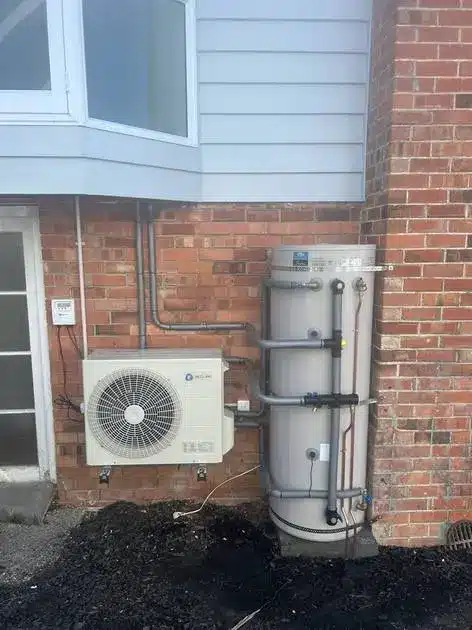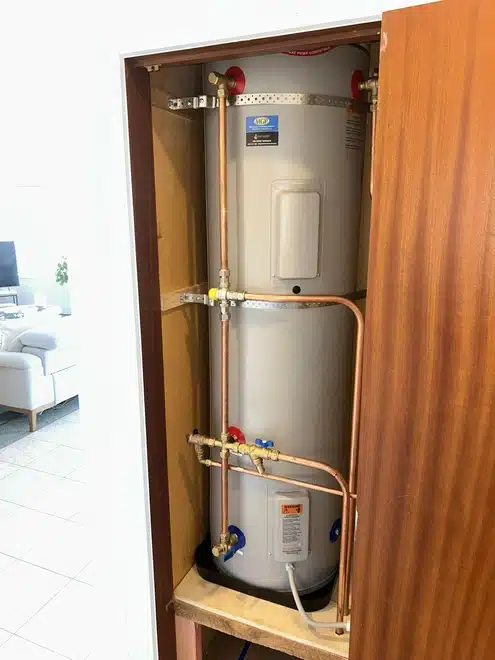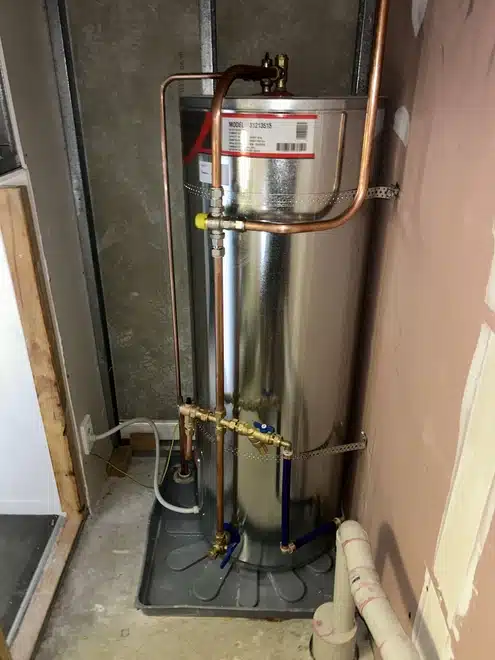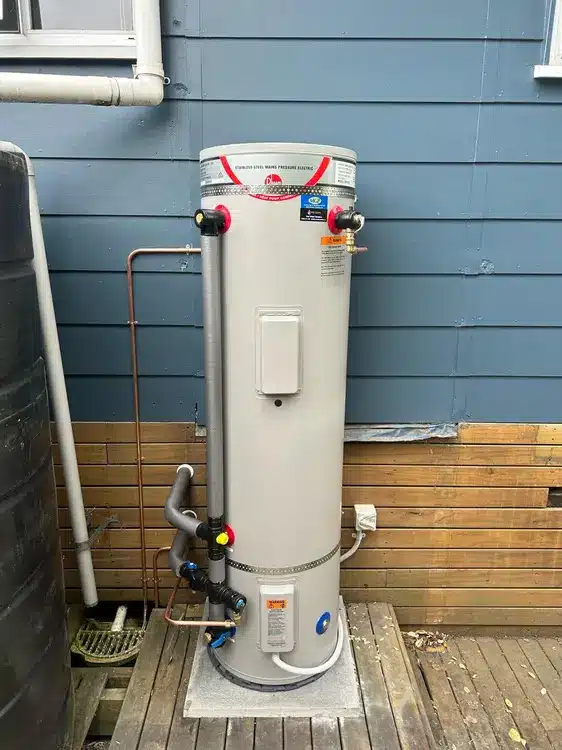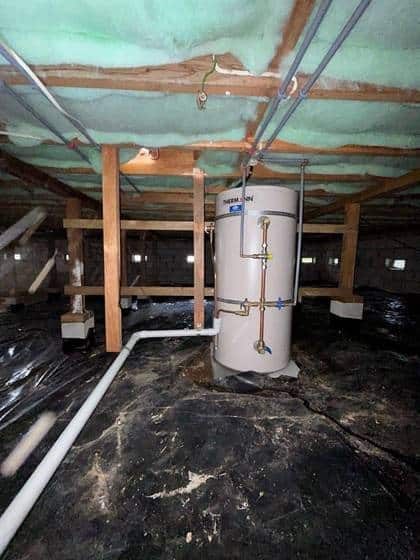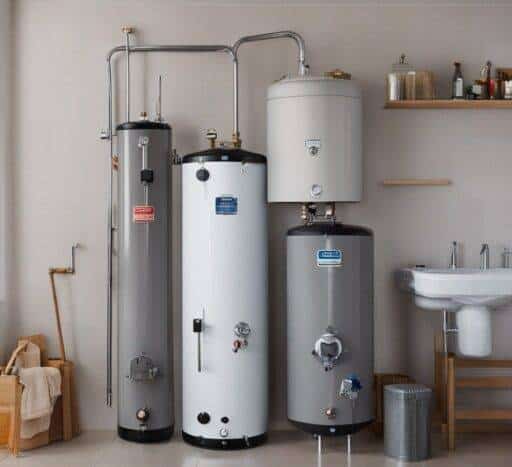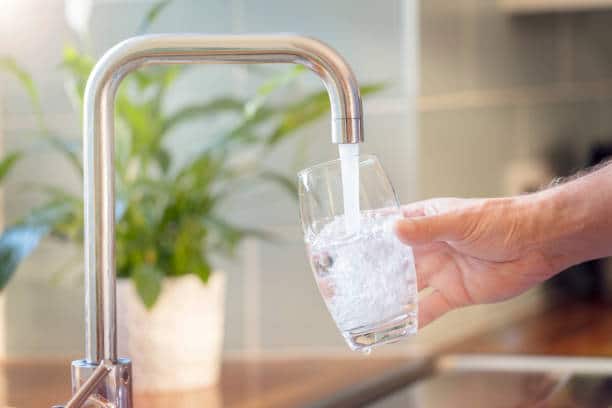How Solar Water Systems Operate
Solar water heating uses free renewable energy from the sun to warm fluids transferring that collected heat directly or indirectly to insulated storage tanks feeding homes. Solar collectors are mounted outdoors, usually roof-mounted, to concentrate rays into copper heat absorption coils carrying water or glycol mixtures. This preheated liquid conveys thermal energy through pipes into the cold water line entering conventional gas or electric cylinders. The existing element or burner now requires less supplemental output with prewarmed water entering, saving energy.
The Pros of a Solar Hot Water System
Solar hot water advantages include:
Lower energy bills — solar reduces gas or electric heating elements usage during daylight hours
Renewable energy — backyard solar harnesses free, abundant sunshine
Carbon emission reductions — operating sans fossil fuels relative to gas heaters
Rebates possible — governments promote renewable adoption
Longevity — collectors last 20+ years with cylinder replacement over time
Adaptable retrofitting onto existing cylinders and plumbing systems
The Cons of a Solar Hot Water System
Daytime-reliant only — clouds and shorter winter daylight impact effectiveness
Supplemental heating still required from gas or electricity
Higher upfront purchase costs — collectors aren’t cheap
Roof leaks possible — installers must seal penetrations watertight
Looks less sleek — pipe and panel aesthetics turn off some homeowners
Can require roof reinforcement — load bearing needs evaluation
How Heat Pump Water Heaters Operate
Heat pump water heaters work by extracting latent warmth from ambient air and focusing this extracted heat to steadily warm clean water stores. An integrated fan pulls outside air across system coils transferring captured thermal energy into refrigerant gases that a compressor rapidly intensifies. This generated heat gets transferred through a heat exchanger into an insulated water tank ready for household use. Modern units use superior variable speed compressors, fans and smart controls for optimal efficiency and low noise.
The Pros of a Heat Pump Water Heater
Heat pump hot water benefits include:
Very energy efficient — heat pumps leverage ambient thermal energy using far less purchased electricity than conventional electric cylinders
Cost saving design — wonderfully efficient systems realize faster payback
Compact aesthetic — wall-mount single units for easy installation
Quiet functionality — modern models hardly noticeable audibly
Eco-friendly electric power source — uses no direct fossil fuels
Government incentives offered currently — subsidies promote adoption
Requires no supplemental heating elements — fully self-contained heating process
The Cons of a Heat Pump Water Heater
Higher purchase price — systems cost more than basic electric cylinders upfront
Venting required — external air intake and exhaust ducting must be configured properly
Efficiency varies seasonally — heat pump output declines in extremely cold periods
Smaller tank capacities — storage volumes trailing larger gas cylinders
DIY install limited — specialised components and knowledge necessary
Underperforms below 5°C — supplemental cylinder heating needed overnight during winter in colder southern regions
Key Performance and Cost Differences
When considering solar collectors versus integrated heat pump systems for upgrading home hot water functionality while saving on monthly energy costs, key variables in play include:
Regional weather conditions — solar generates greater savings in sunnier northern districts whereas heat pumps outperform during southern winters.
Available installation space — rooftops suit solar arrays better while heat pumps mount easily on walls with proper venting.
Upfront costs — solar runs cheaper initially but requires supplemental cylinder while heat pumps embedded tanks cost more than all-in-one systems.
Energy efficiency — heat pumps achieve greater electric savings overall but solar displaces gas usage.
Ease of use — heat pumps operate fully autonomously while solar relies more on homeowner maintenance.
Contact Regional Experts Today
With expertise in all current hot water system configurations, the team at Hot Water Solutions helps Kiwis determine whether upgrading to solar collectors or efficient integrated heat pump units makes best sense for their budget, lifestyle, and geographic considerations.
We take pride in installing quality products correctly sized to handle peak demand reliably for years to come. Learn more about employing sustainable systems that minimise monthly energy costs while delivering endless hot water convenience heating and refreshing homes across New Zealand.
Use our contact us page to reach us and we will be more than happy to discuss your hot water situation. Or give us a call on 0800 497658.
At Hot Water Solutions all we do is hot water.

